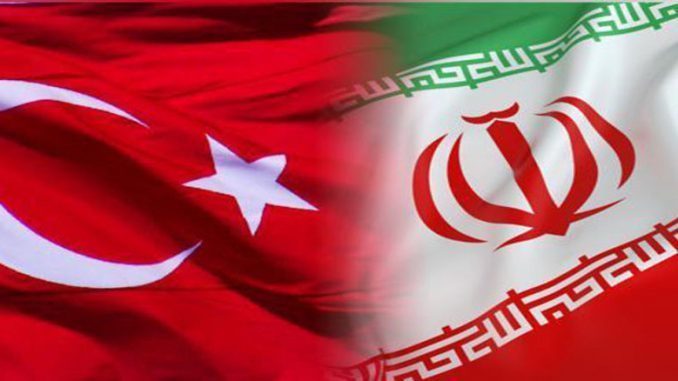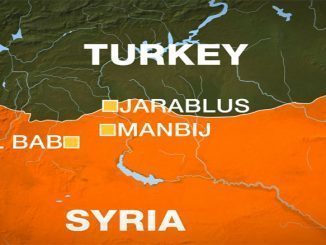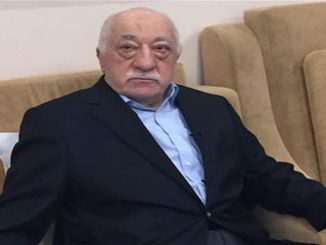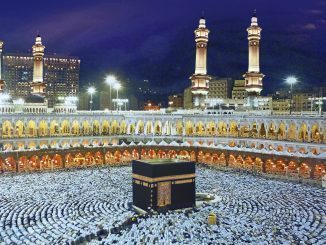
 BY: İbrahim Karagül*
BY: İbrahim Karagül*
Naturally, the president’s visits to Bahrain, Saudi Arabia and Qatar were discussed in Turkey in relation to economic expectations and followed in relation to economic financial partnerships.
Period of ‘defense economy’ between Turkey and the Gulf
Economic troubles in Saudi Arabia and Gulf countries not being able to retrieve the hundreds of millions of dollars’ worth of savings they have been keeping in U.S. banks for years has led countries in the region to turn toward defense with the utmost increase in security threats and has prepared the basis for a new kind of economic rapport between Turkey and the region’s countries.
I call this a “defense economy”. Even though the U.S. and Europe largely supply the region’s defense needs, even though billion dollar arms agreements are made with these countries, the “new situation” presents new opportunities for Turkey, especially for the country’s growing defense industry.
It is no longer a projection that the Gulf funds that were directed toward different sectors until now are going to create a new wave in Turkey’s relations with the region through this “defense economy.” Joint defense agreements are also providing a basis for similar rapport.
Persian nationalism is an imperial dream
The situation is beyond economy, however, for Saudi Arabia and Gulf countries like Qatar and Bahrain. These countries are under serious threat. Direct attacks included, a threat or a scenario that will soak the Persian Gulf in blood that could trigger a regional war and be capable of carrying it all the way into Saudi Arabia is in question.
A map of Persian expansion, a wave of Persian nationalism aggravated by the U.S. invasion in Iraq, the Taliban being disabled with the invasion of Afghanistan and the course of the Syrian civil war has become a threat for the entire region.
The imperial dream that the Tehran administration has hidden through Shiism, its sectarian identity, and marketed through the Iranian revolution that no longer has any significance is in question.
Iran is providing the environment for an ‘Islamic civil war’
There is a question of an Iranian adventure that would target the entire Arab world, which it feels no need to hide, with plans to take over Mecca. The Iranian missiles sent through Yemen to Jeddah and Riyadh have revealed Tehran’s intentions.
It is threatening, menacing and making preliminary preparations for this “Islamic civil war” theory the West has been planning for years. This is how it is dragging the region into an internal conflict – it is establishing partnerships with countries outside the region for the biggest invasion plan of the 21st century.
Iran has hit Saudi Arabia from Yemen, and Turkey from Syria. It has targeted every organization in Syria that has close ties with Turkey, made partnership with the Kurdistan Workers’ Party’s (PKK) Syrian affiliate, the Democratic Union Party (PYD), and has become one of the biggest supporters of the terrorist corridor set to siege Turkey. It has provided arms and money to the PKK, suggested strategies to them and has arranged all its cards in the Syrian war to maul and stop Turkey.
Euphrates Shield has also ruined that plan
Tehran’s real aim is to sever Turkey’s connection to the Sunni Arab world through the corridor in northern Syria to build walls between the two powers. It tried to achieve this by using Kurdish nationalism in the PKK and PYD.
This is why Operation Euphrates Shield not only ruined their plans aimed at the terror corridor and their plans to stop the line the West sees as the energy corridor, it also ruined Iran’s big plan.
The Arab-Persian border stretches from the Iran-Iraq border to the shores of the Mediterranean, and Arab and Muslim lands have been pillaged by both Western countries and Iran. While the Arab world was being pillaged, the Tehran administration turned one end of the war toward Turkey and threatened Ankara’s entire plans and efforts for rapport with regional countries.
The aim is to stop Turkey
The Iranian government is implementing a comprehensive plan for the region, such as seizing Arab fortunes and stopping Turkey. It is attempting to be the eastern front for attacks from the West against Turkey’s plans to grow, which have been continuing for 15 years, escape a century of tutelage and against the fights it has been waging for this sake, like the July 15 coup attempt.
Iran, which could not stomach the expression “Persian nationalism”, which Erdoğan said in Bahrain, needs to see the instability it is spreading in the region for itself. It needs to sit and think about who it is fighting against in Syria and Yemen and contemplate the trouble it is causing for the countries of the region. Tehran also needs to similarly question where it stands on the theory that the Muslim world is going to fight among itself and the “Islamic civil war” project.
Tehran is threatening, not the people
Turkey helped Iran in many areas, including the nuclear issue, yet what it got in return was an attack on Syria. Despite this, Turkey is still making efforts for friendship with Iran and rapport between Iran and the region. However, the contradiction between this country’s words, promises and actions is clear.
Its military and political plans are all based on destruction, as it threatens all the countries in the region and its excessive self-confidence is leading it to aggression. This applies to the Iranian regime, not its people. Persian chauvinism, Tehran’s expansion plans and imperial projects stand out in every area. It is not possible to hide such shame with promises and guarantees.
So why didn’t it applaud Erdoğan when he said this?
The president’s “Persian nationalism” statement signals a rising threat. The Iranian foreign minister’s statement is futile. Why was Erdoğan not applauded by Iran when in the same speech he made calls for unity against Muslims being made to kill each other, calls for rapprochement, calls to take joint action against outside threats? Why was there not a positive response to these entreaties? I think it is obvious that the Iranian regime is obliged to make other statements that give confidence to the countries in the region.
I am noting these as someone who has written countless articles in support of matters in which Iran was right. We are waiting for explanations regarding the missiles that hit Riyadh, the missile attacks targeting Jeddah through Mecca and Iran’s support for terrorists attacking Turkey’s priorities in Syria.
If a missile falls on Mecca by mistake
Let us declare here that unless Iran withdraws from Syria and Yemen, its relations with the countries in the region are not going to get better.
If one day a missile falls on Mecca by mistake, Iran will be crushed under it. In such an atmosphere, an “accidental” missile could even be fired by a third power.
Nobody will allow Iran’s tanks to reach the Kaaba’s walls.
On that day, those wars would not take place far from Iran, but perhaps within its borders.
Plan to make Turkey and Iran go to war
The Tehran administration, which has more ethnic weaknesses than any other country, should take all of this into account when stirring up other countries.
Writing this in a period in which the U.S. administration is threatening Iran is unfortunate. It is clear they want to create a war between Turkey and Iran, which would be destruction for us all. Yet Tehran threatening multiple countries at the same time, even while in such a state, is unacceptable.
This is a a warning against a regional war that is going to be started through Iran.



